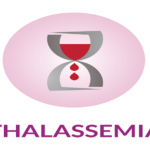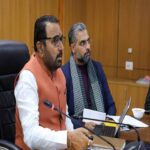New Delhi, November 23, 2018 : Representational Image
The Union Cabinet chaired by Prime Minister Shri Narendra Modi has approved the Allied and Healthcare Professions Bill, 2018 for regulation and standardisation of education and services by allied and healthcare professionals.The Bill provides for setting up of an Allied and Healthcare Council of India and corresponding State Allied and Healthcare Councils which will play the role of a standard-setter and facilitator for professions of Allied and Healthcare.
Details:
- Establishment of a Central and corresponding State Allied and HealthcareCouncils; 15 major professional categories including 53 professions in Allied and Healthcare streams.
- The Bill provides for Structure, Constitution, Composition and Functions of the Central Council and State Councils, e.g. Framing policies andstandards, Regulation of professional conduct, Creation and maintenanceof live Registers, provisions for common entry and exit examinations, etc.
- The Central Council will comprise 47 members, of which 14 members shall be ex-officio representing diverse and related roles and functions andremaining 33 shall be non-ex-officio members who mainly represent the 15professional categories.
- The State Councils are also envisioned to mirror the Central Council,comprising 7 ex-officio and 21 non-ex officio members and Chairperson tobe elected from amongst the non-ex officio members.
- Professional Advisory Bodies under Central and State Councils will examine issues independently and provide recommendations relating to specific recognised categories.
- The Bill will also have an overriding effect on any other existing law for any of the covered professions.
- The State Council will undertake recognition of allied and healthcare institutions.
- Offences and Penalties clause have been included in the Bill to check malpractices.
- The Bill also empowers the Central and State Governments to make rules.
- Central Govt. also has the power to issue directions to the Council, tomake regulations and to add or amend the schedule.
Targets:
-
- An Interim Council will be constituted within 6 months of passing of the Act holding charge for a period of two years until the establishment of the Central Council.
- The Council at the Centre and the States are to be established as body corporate with a provision to receive funds from various sources.
- Councils will also be supported by Central and State Governments respectively through Grant-in-aid as needed. However, if the StateGovernment expresses inability, the Central Government may release some grant for initial years to the State Council.
Major Impact, including employment generation potential:
- Bring all existing allied and healthcare professionals on board during thefirst few of years from the date of establishment of the Council.
- Opportunity to create qualified, highly skilled and competent jobs inhealthcare by enabling professionalism of the allied and healthcare workforce.
- High quality, multi-disciplinary care in line with the vision of AyushmanBharat, moving away from a ‘doctor led’ model to a ‘care accessible and team based’ model.
- Opportunity to cater to the global demand (shortage) of healthcareworkforce which is projected to be about 15 million by the year 2030, asper the WHO Global Workforce, 2030 report.
Expenditure involved:
Total cost implication is expected to be Rupees 95 crores for the first four years. About four-fifth of the total budget (i.e. Rupees 75 crores) is being earmarked for the States while the remaining fund will support the Central Council operations for 4 years and also establish the Central and State Registers.
Number of beneficiaries:
It is estimated that the Allied and Healthcare Professions Bill, 2018 will directlybenefit around 8-9 Lakh existing Allied and Healthcare related professionals inthe country and several other graduating professionals joining workforce annually and contributing to the health system. However, since this Bill is directed to strengthen the healthcare delivery system at large, it may be saidthat the entire population of the country and the health sector as a whole will be benefited by this Bill.






